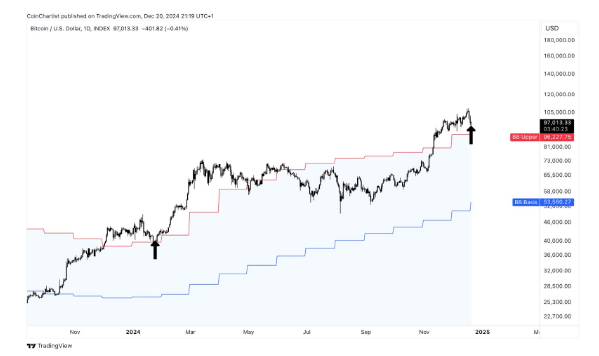At the Ethereum Community Conference (EthCC), Ethereum co-founder Vitalik Buterin provided insights into the future of Ethereum, detailing the ongoing developments and the long-term vision for the protocol.
His speech covered a wide range of topics, including the transition to Proof of Stake (PoS), sharding, Verkle trees, state expiry, and Ethereum Improvement Proposals (EIPs).
Buterin emphasized Ethereum’s goal of becoming a more powerful, robust, secure, and decentralized system. The transition to PoS, a significant development for Ethereum, is set to reduce the annual issuance of Ether and introduce a new security model known as weak subjectivity. This shift is expected to make Ethereum’s monetary policy more predictable and secure.
Buterin also discussed the implementation of sharding, a solution aimed at significantly increasing Ethereum’s scalability. With the full implementation of sharding and roll-ups, Ethereum is projected to process up to 100,000 transactions per second, marking a major leap in the platform’s capabilities.
In terms of improving decentralization, Buterin introduced the concept of Verkle trees. This development will allow Ethereum nodes to verify blocks without having to store hundreds of gigabytes of data, thereby enhancing the protocol’s decentralization.
Buterin also touched on the concept of account abstraction, which will allow transactions to be verified by any algorithm, not just elliptic curve signatures. This could lead to better multisigs, smart contract wallets, social recovery wallets, and other improvements.
The co-founder further discussed the layer separation vision, where Layer 1 (L1) is for security and dependability, and Layer 2 (L2) is for rapid iteration and high scalability. He expressed his desire for Ethereum to eventually “settle down” and become a system that optimizes for safety and predictability.
Lastly, Buterin highlighted the need to reduce Ethereum’s complexity while increasing its capabilities. He mentioned several proposals to achieve this, such as banning the self-destruct opcode, reforming how gas costs work, and switching to Verkle trees.
As Ethereum continues its journey towards its long-term vision, these developments signal a promising future for the platform, offering increased scalability, security, and decentralization.
Image source: Shutterstock
Credit: Source link












































